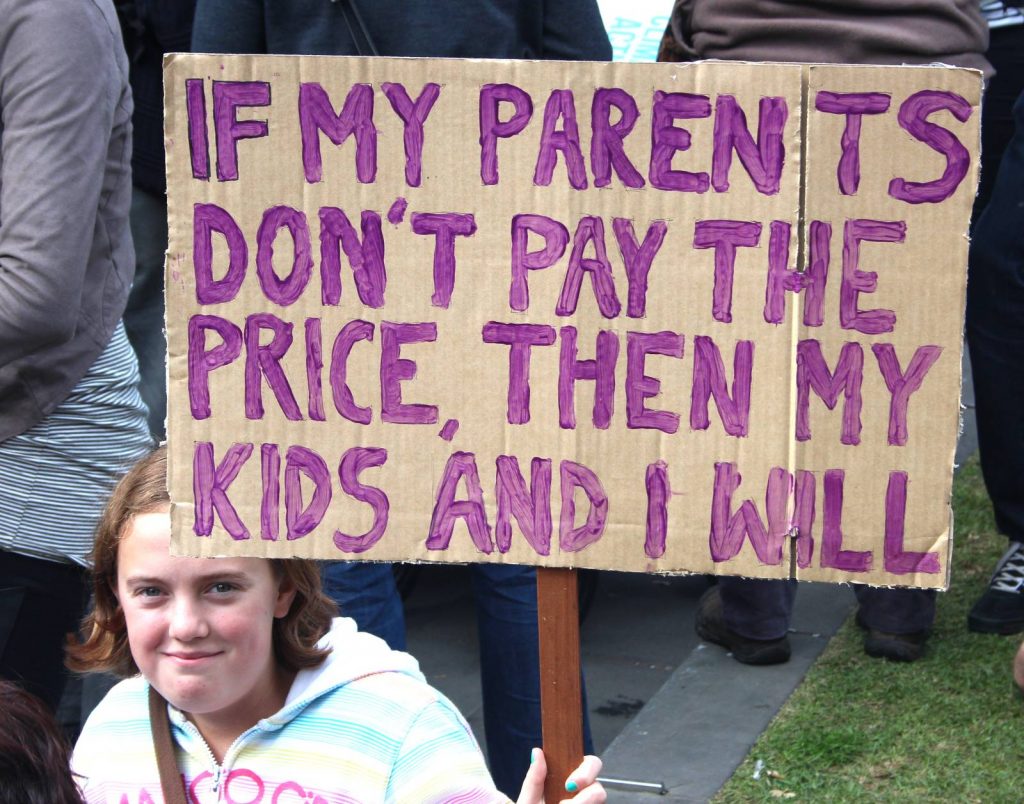by Cindy Offutt
for the “Progressive Views” column, Boerne Star, July 16, 2021

Dear Mr. President,
I write you today on the issue of climate change. Thank you for undertaking to reduce greenhouse gas pollution and for setting achievable goals for 2050. It is very heartening – indeed, it’s a huge relief – that you have made the climate crisis one of your top priorities. I strongly urge you to stick to your guns as you negotiate with what many Americans consider unreasonably obstinate and recalcitrant Republicans.
That said, I am cautiously optimistic about recent news reports that some Congressional Republicans have banded together to form the Conservative Climate Caucus, suggesting that at least some Republicans may finally have come around to acknowledging that climate change is both real and extremely serious. As the Associated Press reported in June, the new Republican climate caucus “includes some strong Trump supporters” as well as “independent thinkers.” Or as one Republican caucus member put it: “It’s long past time for Republicans to acknowledge the reality of climate change and put forward solutions that reduce carbon emissions while remaining ‘aligned with our business community.’”
Still, given their consistent antagonism to all things Democratic (or progressive or liberal or whatever), it’s a mystery just what the Republican caucus will propose as solutions for the climate crisis. Regardless, I do believe it’s an opportunity that can’t be ignored and I urge you to take advantage of the moment to reach across the aisle and work with these Congressional Republicans on a climate plan that is both effective and just.
In this regard, I believe there is something missing from your otherwise excellent plan to reduce greenhouse gas pollution. That missing component is a price on carbon – what some folks call a carbon fee.
Two bi-partisan groups – Citizens’ Climate Lobby and the Climate Leadership Council – have advocated for a carbon fee for years. However, a carbon fee is not the end of the story …
Both groups have also advocated for a refund of that fee. Or to put it another way, both groups support allocating the proceeds from the carbon fee directly back to Americans via a dividend check – a check which Americans may then spend as they see fit.
While it is not the be-all and end-all for managing the climate crisis, carbon pricing does offer many advantages over other ideas. For example, carbon pricing does not choose winners and losers. Carbon pricing is not a government-mandated regulatory approach. And carbon pricing is not the Green New Deal.
That said, carbon pricing is something that both Republicans and Democrats should agree on. Carbon pricing utilizes a market-based approach to reducing carbon emissions and it permits individual freedom of choice. Carbon pricing will create new 21st century jobs for a 21st century economy. And carbon pricing will generate competition and new technology.
And, Mr. President, carbon pricing will get the U.S. on a path to net-zero emissions by 2050 faster and more efficiently than any other near term idea.
But don’t just take my word for it. Proponents of carbon pricing include over 3,500 economists from across the political spectrum. All agree that assigning a price to carbon is one of the least intrusive and most efficient means for significantly reducing carbon emissions. (See: “What economists say about carbon pricing,” by David Wogan, Scientific American Plugged In, 3 Jun 2013)
Perhaps the clearest and most succinct explanation of why carbon pricing is supported by so many economists is quoted in the Scientific American article:
“The economics here is straightforward: emitting carbon into the atmosphere entails a negative externality. In the absence of any policy, people will emit too much… (Imposing a smart tax on carbon emissions) will induce households and firms to internalize the carbon externality when deciding, for example, how much to drive, what kind of car to buy, how much electricity to use, what kind of electric power plant to build, and so on.”
Another point that needs emphasizing is this. Interestingly – and perhaps even surprisingly – carbon pricing is a popular policy not just with a majority of ordinary American people. It’s also an increasingly popular policy with businesses. That’s because business leaders recognize that market-based solutions (like carbon pricing) represent a consistent, fair and gradual path towards a cleaner, more sustainable economy. Even the U.S. Chamber of Commerce and the American Petroleum Institute support a market-based, economy-wide price on carbon!
Even lifelong Democrats like myself would welcome Republican engagement on the enormous imperative that climate change presents. We cannot let this rare opportunity pass us by. It’s time to make real the bipartisanship you so-often call for. Include carbon pricing with a dividend in your climate battle plan and work with both sides in Congress to get it passed!
Ready to get involved?
Learn more about upcoming opportunities to take action online and/or in our own community.



